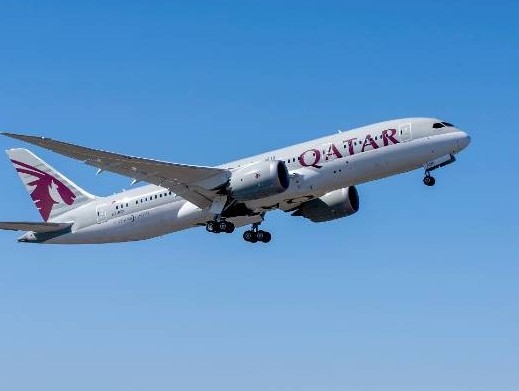
Qatar Airways partners with IATA, ClimateCare to launch the Carbon Offset Programme
All contributions received through the programme will be directed to the Fatanpur Wind Farm project in India, via the airline’s partner ClimateCare.

Qatar Airways has officially launched its carbon offset programme. The airline’s passengers now have the opportunity to voluntarily offset the carbon emissions associated with their journey at the point of booking.
Qatar Airways’ carbon offset programme is built on a partnership with the International Air Transport Association’s (IATA) Carbon Offset Programme, providing its customers with the assurance that the credits bought to offset these emissions are from projects delivering independently verified carbon reductions as well as wider environmental and social benefits.
Qatar Airways Group chief executive, Akbar Al Baker, said, “We are pleased to be able to offer our customers the opportunity to offset the carbon emissions associated with their journeys with us. As an environmentally responsible airline, our modern fleet of technologically advanced aircraft, together with our fuel-efficiency programme, combine to optimise aircraft performance and reduce the environmental impact of flying. Our customers can now help to further minimise their environmental footprint by opting to contribute to our carbon offset programme.”
IATA director general and CEO, Alexandre de Juniac, said, “We are delighted to welcome Qatar Airways to the IATA Carbon Offset Programme. Their commitment underlines our industry’s determination to reduce our impact on the environment while allowing Qatar Airways’ customers the opportunity to lessen the environmental impact of their own travel. There is no alternative to aviation when it comes to long distance travel and carbon offsetting is an immediate, direct and pragmatic means of limiting the impact of climate change.”
Customers can opt in to Qatar Airways’ carbon offset programme when purchasing tickets through the Qatar Airways website and mobile application. Booking information, including information regarding the carbon offset programme, is available in multiple languages including Arabic, Chinese (classic), Chinese (traditional), Croatian, Czech, English, Farsi, French, German, Greek, Hungarian, Indonesian, Italian, Japanese, Korean, Polish, Portuguese, Romanian, Russian, Serbian, Spanish, Thai, Turkish, Ukrainian, and Vietnamese.
Emissions will be offset with climate and sustainable development expert ClimateCare, through the Fatanpur Wind Farm project in India. This project has installed wind turbine generators (WTGs) with a combined output of 108 MW to generate and supply clean electricity to the Indian National Grid. The project consists of 54 wind turbines, installed in and around the villages of Taluk Dewas, Tonkkhurd and Tarana Taluk in the Dewas and Ujjain districts of Madhya Pradesh. The turbines displace electricity generated from fossil fuel sources from the Indian grid, reducing the overall carbon intensity and leading to emissions reductions. This project avoids 210,000 tonnes of greenhouse gas emissions annually.
ClimateCare director of partnerships, Robert Stevens, said: “We are pleased to be working alongside Qatar Airways and IATA to retire high quality, independently verified carbon credits on behalf of Qatar Airways’ customers who want to take responsibility for the environmental impact of their flights. Their support for the Fatanpur project not only reduces global carbon emissions, it also provides employment opportunities; delivers improved education through providing materials and expertise to nearby schools; and supports a mobile medical unit – enabling improved healthcare to the local community.”
IATA’s Carbon Offset Programme has been approved by the independent audit organisation Quality Assurance Standard, the highest standard for carbon offsetting which assesses how organisations calculate emissions, select offset projects and how they communicate this information to their customers. IATA is one of only four organisations worldwide to meet this standard.
Qatar Airways operations are not dependent on any specific aircraft type. The airline’s variety of modern fuel-efficient aircraft has meant it can continue flying by offering the right capacity in each market. Due to Covid-19’s impact on travel demand, the airline has taken the decision to ground its fleet of Airbus A380s as it is not commercially or environmentally justifiable to operate such a large aircraft in the current market. The airline’s fleet of 52 Airbus A350 and 30 Boeing 787 are the ideal choice for the most strategically important long-haul routes to Africa, the Americas, Europe and Asia-Pacific regions.

